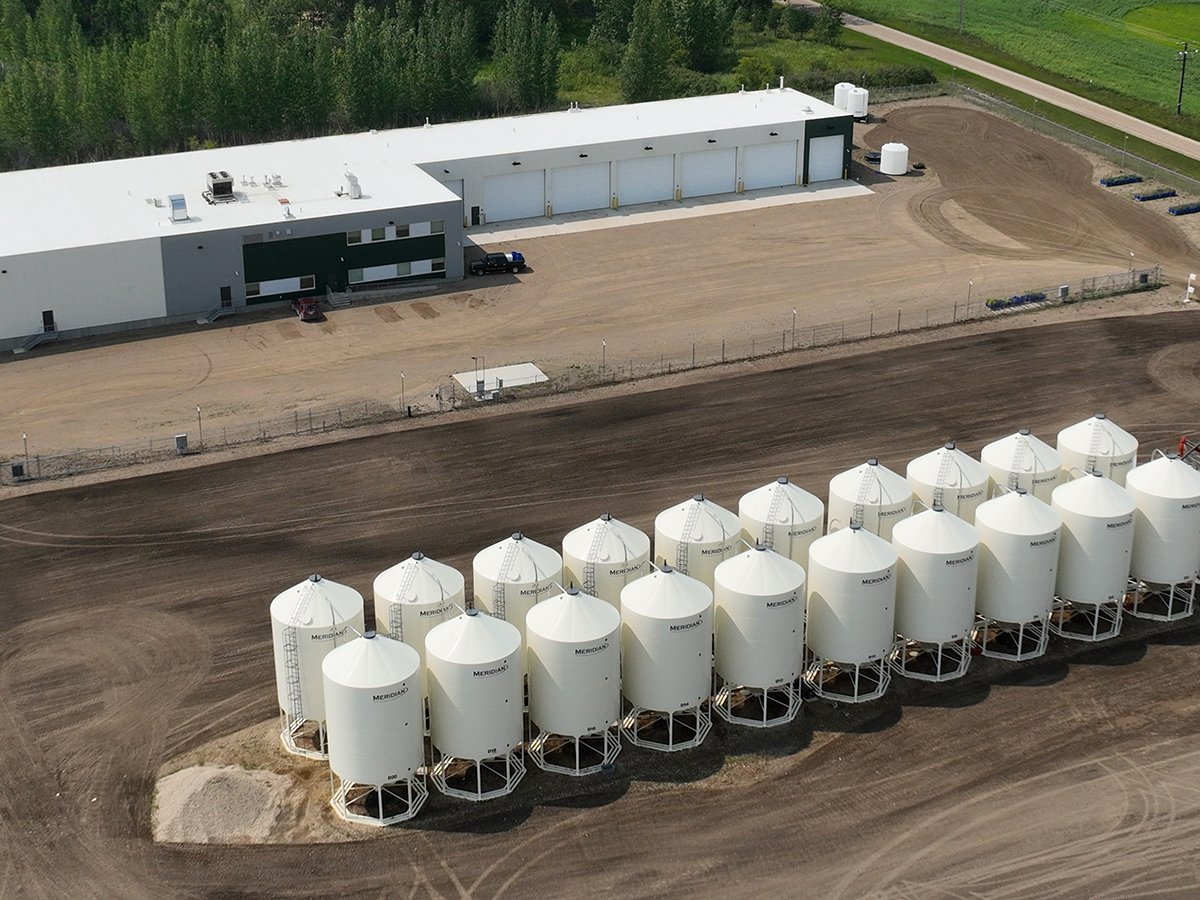Many dairy farmers are bewildered by Agrifoods’ plan to sell off the bulk of its assets to a private company, says the former chair of Saskatchewan’s milk control board.
“Producers are upset, they’re shocked and they don’t know what went wrong,” said Leo Fuhr, a Langenburg, Sask., farmer.
“It looked like things were on the up and up, then this comes along.”
Agrifoods International Cooperative owns processing and manufacturing plants across Western Canada, and it recently bought a dairy company in Nova Scotia.
Read Also

Saskatchewan firm aims to fix soil with compost pellets
In his business, Humaterra, Leon Pratchler is helping farmers maximize yields in the weakest areas of their fields through the use of a compost pellet.
Agrifoods was formed by the merger in the 1990s of five dairy farmer co-operatives from British Columbia, Alberta and Saskatchewan.
Agrifoods produces milk, cheese, ice cream and other dairy products under the name Dairyworld Foods. In December, the board of directors of Agrifoods announced that it had struck a deal to sell its Dairyworld assets to Italian dairy multinational Saputo Inc.
Agrifoods would continue as a co-operative and continue to collect raw milk.
The deal has yet to be ratified by Agrifoods’ delegates at a Jan. 12 meeting in Calgary.
Fuhr said farmers who have called him don’t understand how a growing successful company like Agrifoods, which is the result of a century of dairy farmers trying to build a stake in the value-added processing industry, has suddenly decided to give up.
“The suddenness is what they don’t understand,” said Fuhr.
“They feel they’ve been pushed out without any say.”
Agrifoods’ chair refuses to discuss why the board of directors decided to ditch Dairyworld.
But corporate spokesperson Dan Wong said Agrifoods found it wasn’t big enough to satisfy its retail grocery store customers, which have gotten larger and more powerful in the last few years.
Richard Doyle, of Dairy Farmers of Canada, said a handful of huge grocery chains now control the retail industry and processors are feeling that power. As retail chains merge and grow in geographical and financial reach, processors have been forced to follow.
“There is a tendency for each of the other sectors to counterbalance, to become as concentrated,” said Doyle.
“This is the problem that farmers are having. They can’t become as concentrated, which is why we feel we need marketing boards and supply management and some means of being able to negotiate in the marketplace.”
Doyle said dairy farmers have not been forced to merge and expand the same way that processors and retailers have because supply management protects them.
Fuhr said he worries that trade pressures will weaken supply management, which will leave dairy farmers in the same sorry state Agrifoods has found itself in.
“We’re getting hit from all sides,” said Fuhr. “We as farmers don’t have much say in the marketplace.”
That say will diminish if Agrifoods delegates vote to sell off Dairyworld, said Fuhr.















